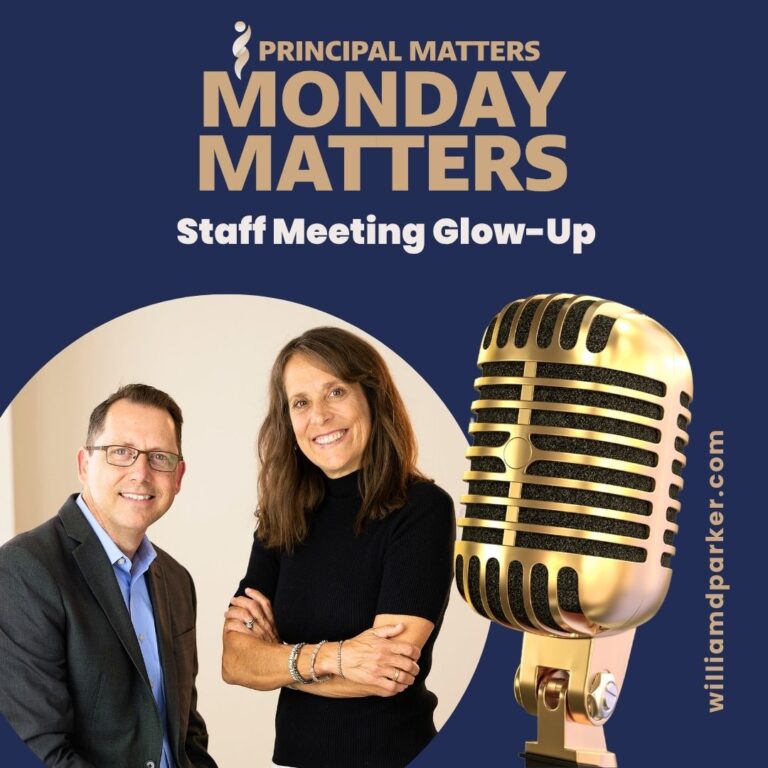Podcast: Play in new window | Download
In last week’s episode, Colonel Brad Ruttman shared lessons from his military experience that may also apply to education leaders.

This week, he unpacks more of his “Pocket-List for Leading a New Command” as well as some of his favorite leadership quotes.
Meet Colonel Brad Ruttman
Col. Brad Ruttman is a 21-year veteran of the US Air Force and currently serves as the Operations Group Commander for the 138th Fighter Wing. He has commanded at the tactical, operational, and strategic levels and is a graduate of Air War College. As an F-16 fighter pilot, Col Ruttman has 5 combat tours and over 100 combat sorties in Iraq and Afghanistan. He is the recipient of several military awards to include 2 Meritorious Service Medals, 4 Combat Air Medals, the Aerial Achievement Medal and the Iraq and Afghanistan Campaign Medals. He resides in Owasso, OK with his wife Stephanie and their five children: JJ, Christian, Coleman, Savannah, and Dawson. All five of his children attend Owasso Public Schools.
Part 2 of the Leadership Pocket-List
WDP: Thank you again for being on the show. Last time you shared several takeaways, including setting boundaries/instilling discipline, project empathy/right any wrongs, and building trust. Can you take us through the other elements of your list?
Col. Ruttman: Sure. Let’s talk next about “Leading Your People Where They Are.” For strategic leaders, it is very important you think about your tactical team members from their perspective. That means understanding your people, what they do, and your own limitations. You cannot just assume you know how to do their work. In my own experience, I have seen officers or commanders show up to enlisted personnel and tell them why they need to work harder because of the global, strategic outcomes needed around the world. This kind of feedback is not helpful. Most people at the tactical level, however care about purpose, security and relationships. Don’t spend time trying to convince others of strategy. Meet them in the ways that matter most to them.
WDP: I’ll give an education application. When I was a high school principal, I would visit our cafeteria staff to thank them for the good work they were doing in feeding our students. Sometimes we would have lunch together or a quick meeting so that I could hear any concerns. I did not try to burden them with academic targets, for instance, as they were really not interested in the organizational or strategic plans I was working on. They were most interested in making sure every student was eating.
Col. Ruttman: That’s a great segue to the next area: “Seek first to understand, then to be understood” (Covey). I think many times as leaders, especially brand-new leaders, someone may have been a teacher for a long time, and when they become a principal, they cannot wait to lead a school the way they always dreamed of it being. The challenge is finding ways to influence others because most of them will not be inspired by your ideas. As a leader, it is your job to take your ideas and influence others. The best ways to influence are to first understand what their priorities are, understanding their history, and showing empathy for their experiences. If you can convince others that new ideas are ones they suggested, then they will be more committed to new outcomes.
WDP: Yes, ownership has to happen for accountability to be meaningful. You also talk about the “Staying sharp” with several bullets:
- Never think “you’ve arrived”
- Think like your boss’s boss
- Beware of the Bathsheba Syndrome
- Study Psychology
What lessons would you unpack from those areas?
Col. Ruttman: ‘Sharpening the saw’ is another Covey takeaway. It is very easy when you are younger to set a goal for a higher level of leadership. When you finally have that position, however, it is easy to exhale and think you have nowhere to grow. You have to keep finding ways to be a better leader than you were yesterday. This happens by studying others, reading good books, and accepting that you never arrive. The ‘Bathsheba Syndrome’ came from an article I read on how leaders often fall from grace when they do not know how to hand the responsibility of their own position of leadership. When you think you have no more to learn, you start compromising to hold onto your position, instead of staying sharp and continuously being self-awareness and self-management.
On the area “Think like your boss’s boss,” I believe it is important to be aware of those you are leading as well as those whom you answer to at the operational level. It means thinking two-levels above yourself.
WDP: For school leaders, one of our greatest fears should be becoming someone no one would want to work for. Even the strongest leaders can slide. Can you explain how you’ve seen that happen?
Col. Ruttman: Yes, the foundation for that article on the ‘Bathsheba Syndrome’ was in response to General Petraeus, a four-star General who everyone respected. After all of his success, he had an affair with a news reporter while in Afghanistan and lost his entire command. How does this happen? It happens when people do not stay self-aware.
WDP: Entire organizations disintegrate around lack of trust and character. If the outcomes we want for others requires those we lead to behave with integrity, then we have to model integrity as well.
In addition to your ‘Pocket list,’ you also keep a running list of great leadership quotes, including this one from Colin Powell: “Never let your ego get so close to your position that when your position goes, your ego goes with it.” What does that mean to you?
Col. Ruttman: The reason I love that is quote is because I have seen it happen. For fighter pilots, for instance, sometimes they can wrap their identity in that position. I’m sure there are educators who wrap their entire ego into that position. What happens when they retire or no longer have that seat? If your identity is wrapped into that position, you may feel like your life has fallen apart. The most successful leaders can lead without placing all their marbles in that own ‘bowl’ of their leadership position. They learn to find meaning outside of work.
WDP: Yes, investing in all those other areas of your life (outside of leadership), make you a better leader. As we wrap up, what is one of the most meaningful experiences you have had as a leader?
Col. Ruttman: It’s funny because as a fighter pilot, you are not trained to care about relationships. You are trained to accomplish a mission. You want your front-line pilots to be the best. But as you get older, you have to learn how to work with others. What I think has been most important is that in the end, it is the relationships that matter most. Another of my favorite quotes is: “The axe forgets, but the tree remembers.” – African Proverb
Every relationship you have has impact. This is especially true when you are a leader. What you may think is insignificant may be significant to others. When I look back on my career, I am proud that I’ve been able to bridge the relationships between others.
WDP: Another quote from your list is: “The two most important days in our lives are the day we are born and the day we find out why.” – Mark Twain. If you can help someone find the purpose in their life, you are the greatest leader ever, in their eyes! Col. Brad Rutman, it is an honor to call you a friend. Thank you for sharing these lessons with leaders.
Col. Ruttman: It is so important we reach as many people with these important lessons. Don’t let these ideas end with your leadership. We must share them with others!
Additional Quotes
Colonel Ruttman also shared several leadership quotes he carries in his pocket-list:
– Resist complaining (only up, never down), resist the need to explain your decisions unless you need to repair a relationship
– Resist the need to win at all costs. Sometimes losing will help you more in the long run. Leadership is a contact sport and a constant negotiation.
– Realize that sometimes subordinates bring ideas to impress you, not to make themselves look smarter than you. Even if you’ve already thought of it, praise their idea and push it forward if it’s good.
– Get mad, then get over it (Colin Powell); 90% of things I got upset about in my career really weren’t that bad.
– Never let your ego get so close to your position that when your position goes, your ego goes with it. (Colin Powell)
– ALWAYS appear approachable.
– Show up to work and leave work on time… to the max extent possible. Not excessively early, not excessively late…on time. If you are unable to get your work done in your allotted duty day then you are not using your time wise.
– Never use hyperbole in electronic messages. It almost always gets misconstrued.
– Be careful about using exaggerations and conjecture to get your point across. Most individuals will be argumentative and defensive and will focus on your data than on the bigger picture. Then they will call you out on the data instead.
– As a leader your words will matter more, so choose them wisely. But keep in the back of your mind, you’re not as cool as you think you are.
– The large majority of your troops don’t want you in their house or want to be social media friends. It’s not that they don’t like you, they just don’t like you in their personal lives!
– A society grows great when old men and women plant trees whose shade they know they shall never sit in. – Greek Proverb
– “You can train a bright, willing novice in the fundamentals of your business fairly readily, but it’s a lot harder to train someone to have integrity, judgment, energy, balance and the drive to get things done” – unknown
– “The axe forgets, but the tree remembers.” – African Proverb
– “The two most important days in our lives are the day we are born and the day we find out why.” – Mark Twain…If you can help someone find the purpose in their life, you are the greatest leader ever, in their eyes!
Now It’s Your Turn
What is one step toward self-awareness you can practice to avoid the pitfall of thinking you have arrived? What is one step you can take today to invest cultivating positive relationships with those whom you are serving and leading? Thanks again for doing what matters!




